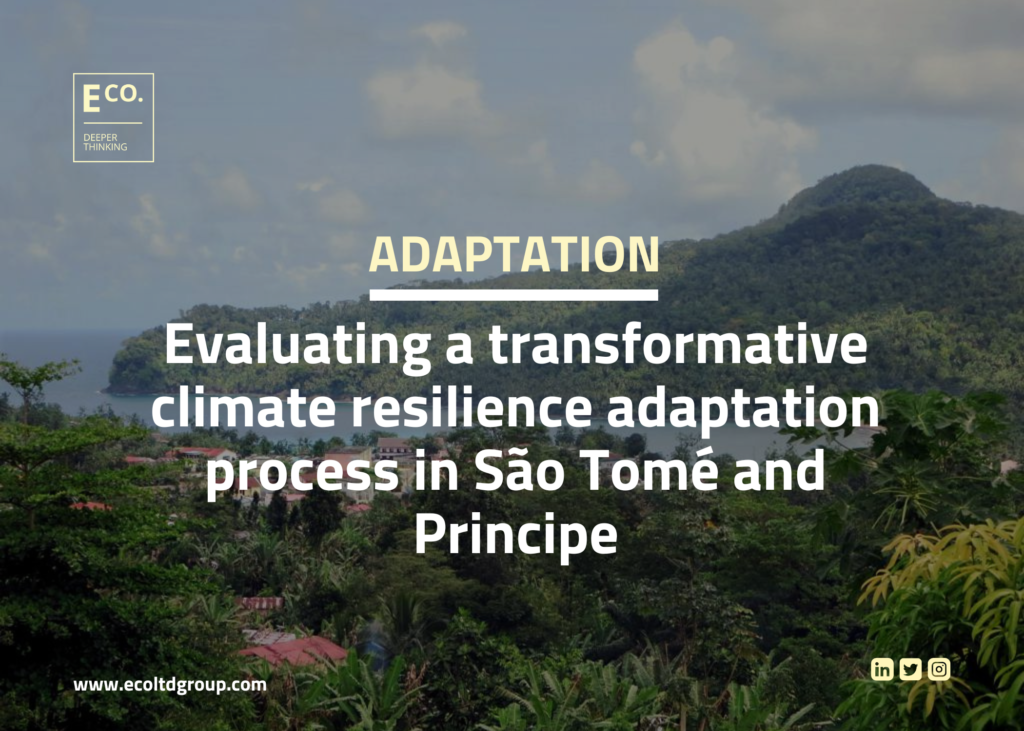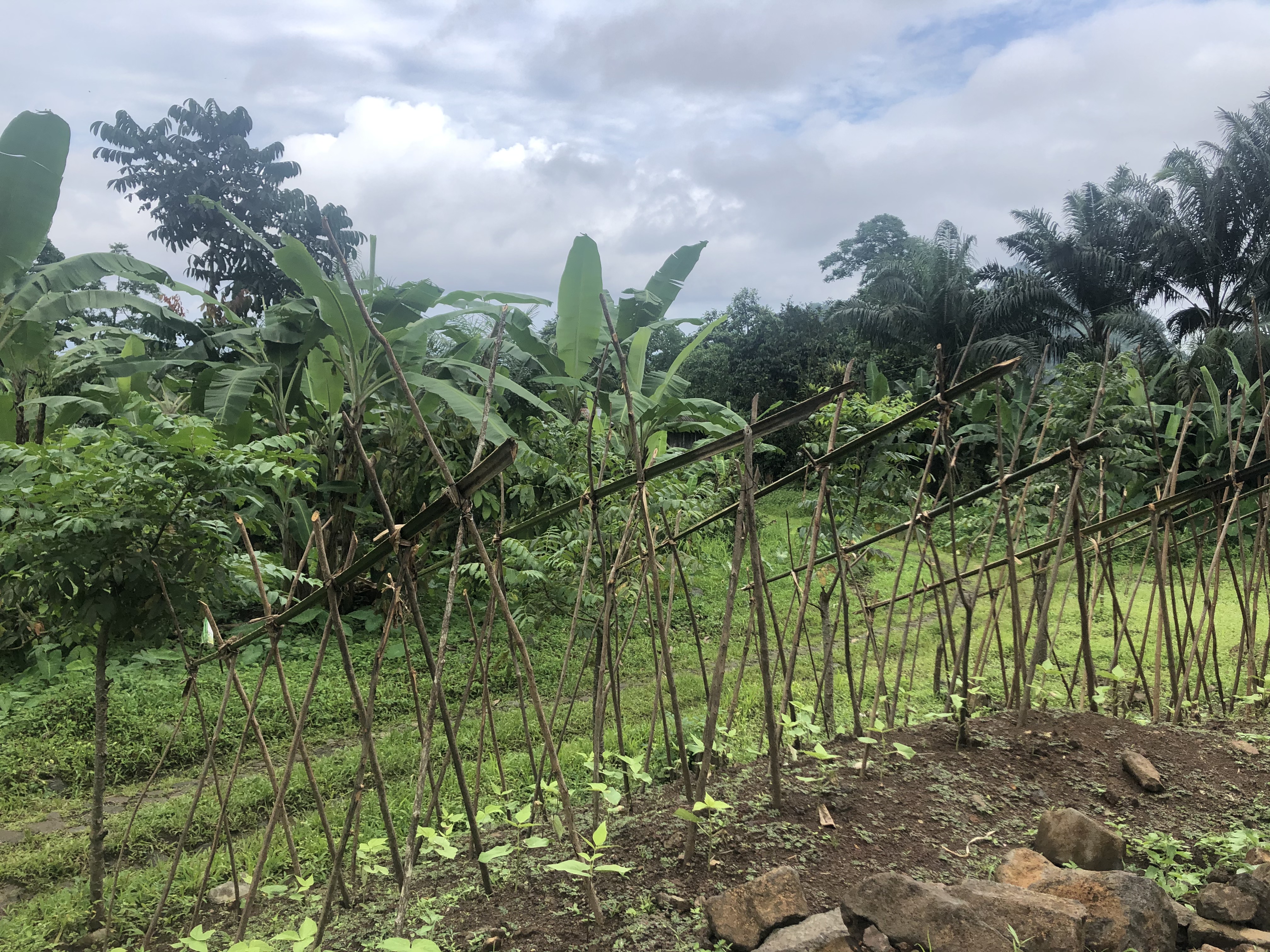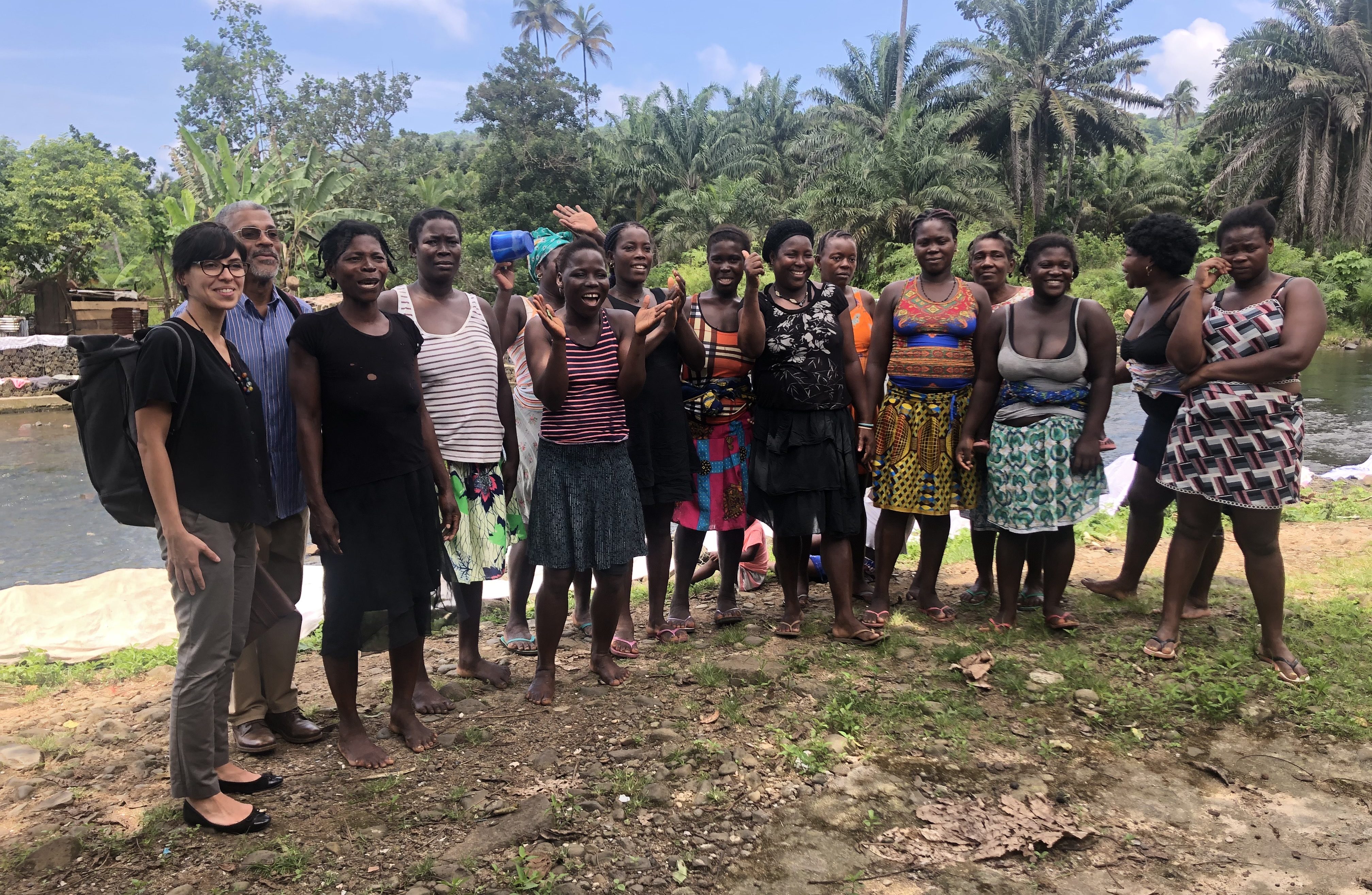Evaluating a transformative climate resilience adaptation process in São Tomé and Principe
12 February 2020, Dr Lili Ilieva, Category: All insights, News, Tags: adaptation, agriculture, climate change, GEF, gender, LDCF, Sao Tome and Principe, SIDs, UNDP, women farmers

Several years ago, E Co. supported the development of climate resilience within the agricultural practices of rural communities in São Tomé and Principe.
Dr Lili Ilieva worked on the Global Environment Facility (GEF) Least Developed Countries Fund (LDCF) project: “Enhancing capacities of rural communities to pursue climate resilient livelihood options in the São Tomé and Principe districts of Caué, Mé-Zochi, Príncipe, Lembá, Cantagalo and Lobata”.
The project was implemented by the United Nations Development Programme (UNDP) and executed by the Ministry of Agriculture and Rural Development between 2014 – 2019. E Co. was invited to conduct the Terminal Evaluation of the project and generate recommendations and lessons learned to inform forthcoming initiatives.
As climate risks continue to jeopardise the livelihoods of smallholder farmers, the need for resilient agricultural solutions becomes more critical. Because of their geographic isolation or limited natural resources, Small Island Developing States (SIDS) are highly exposed and vulnerable to climate disasters. These result in a complex set of food and water security challenges.
São Tomé and Principe (STP) is a small country comprised by an archipelago at the Gulf of Guinea and it is particularly vulnerable to climate hazards such as droughts, landslides and floods. In addition to this, the country has witnessed a significant variability of seasonality. The agricultural sector is vital for the economy and the communities of STP. However, the sector is characterised by low productivity due to lack of adequate agricultural practices and infrastructure (e.g. irrigation systems), degraded ecosystems. This situation is further exacerbated by climate change.
- A transformative climate resilience adaptation project paves the way to climate resilience
- Lessons learned from climate resilience adaptation processes in Sao Tome and Principe
- Learn more about adaptation
A transformative climate resilience adaptation project paves the way to climate resilience

Stabilisation of a slope to increase the resilience of agricultural production.
To change this paradigm, STP embarked on a journey to make their agricultural sector and smallholder farmers more resilient. The GEF LDCF project: “Enhancing capacities of rural communities to pursue climate resilient livelihood options in the São Tomé and Principe districts of Caué, Mé-Zochi, Príncipe, Lembá, Cantagalo and Lobata”. The project was implemented by UNDP and executed by the Ministry of Agriculture and Rural Development in the period between 2014 – 2019.
The project sought to strengthen the institutional capacity of key government agencies to integrate climate change adaptation and climate resilience in the agricultural sector, while increasing the resilience of farmers through adaptive infrastructure and practices. The project is a pioneer in mainstreaming climate change adaptation in agriculture and promoting participatory processes for decision-making. The project also introduced innovative technologies such as greenhouse technology to protect agricultural production from disease and heavy rains and generate alternative income. Another outcome was enhancing the adaptive capacity of farmers through business models such as cooperative organisations.
Together with the national consultant, Antonio Correia – we interviewed more than 20 key stakeholders and visited 12 villages in Sao Tome and five villages in Principe to consult local beneficiaries.
Lessons learned from climate resilience adaptation processes in Sao Tome and Principe

E Co. consultant Lili Ilieva (right) and the women’s group association for processing of fish.
During the formulation of this climate resilience project, several lessons were learned:
- Participation of multiple stakeholders at all levels of governance (local, district, and national) is vital for the success and sustainability of the project.
- South-south know-how and knowledge exchange will enhance capacities to design relevant adaptation measures.
- Developing indicators for the project objective and outcomes need to take into consideration how to best demonstrate the impact of the project with regards increased institutional capacity.
- Introduction and scaling-up of innovative adaptation technologies must be fully planned from the project design stages and properly resourced.
At E Co. we are looking forward to support other adaptation projects in their evaluation and collection of lessons learned. Learn more about the work we do here.
Learn more about adaptation
If you’re interested in reading more about adaptation, climate resilience, and how these are implemented within project work, read Lili’s previous article on Boosting climate finance for adaptation actions under the NDCs in Latin America and the Caribbean? |
Looking for insight into climate finance? Look no further
Get in touch with our climate finance consultants to discuss a project you’re working on and create successful, fit-for-purpose projects, now and in the future. Email us at: amy@ecoltdgroup.com or find us at the following:
Twitter: @ecoltdnews
LinkedIn: E Co.
Instagram: @ecoltdnews
One Reply
Join the conversation by posting a comment below. You can either use your social account, by clicking on the corresponding icons or simply fill in the form below. All comments are moderated.
Is it possible to know more about the green house technology used by the project? I am particularly interested in understanding how the technology works to protect agricultural production and generate alternative income.